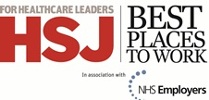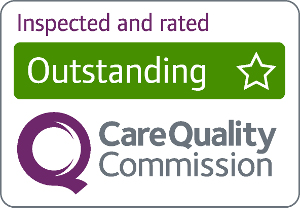Job summary
- Main area
- Paediatrics
- Grade
- NHS AfC: Band 5
- Contract
- Fixed term: 18 months (For service needs)
- Hours
- Full time - 37.5 hours per week (Will be required to work beyond 17:00 on occasions to support evening clinics)
- Job ref
- 409-6219923
- Employer
- Mersey and West Lancashire Teaching Hospitals NHS Trust
- Employer type
- NHS
- Site
- Whiston Hospital
- Town
- Prescot
- Salary
- £28,407 - £34,581 per annum
- Salary period
- Yearly
- Closing
- 04/07/2024 23:59
Employer heading

Children & Young People Epilepsy Youth Worker
NHS AfC: Band 5
Job overview
This is an exciting opportunity for an experienced Youth Worker to join the Paediatric Department at Mersey and West Lancashire NHS Trust based at Whiston Hospital.
This is a new role with a fixed term period of 18 months. The successful candidate will work as part of the Paediatric Epilepsy Multi-disciplinary Team to provide and lead a wide range of appropriate recreational activities to enable young people aged 11-18 years with Epilepsy to develop cognitive, social, and emotional skills throughout the service. To participate in the Paediatric Epilepsy multi-disciplinary team using specific skills to contribute to the care and understanding of the young people, their families, and carers. To ensure the clinic environment is young people friendly and stimulating. To encourage and continue to develop a peer group network of support. To supervise and mentor students as required. To conduct survey at baseline, mid-year, and 12 months to include Quality of life indicators, confidence measures and self-management ratings. To work closely with Children with Epilepsy and conduct relevant workshops in the community. To support the wider hospital youth service and ensure young people from the service to which they are aligned can engage in activities and sessions. To actively participate in the Children and Young People Patient Experience Group.
Interview Date: TBC
Main duties of the job
- To form a good working relationship with the paediatric epilepsy multi-disciplinary team to provide a thorough and effective service, meeting the holistic needs of the young person and their families.
- To increase engagement with young persons and their families and provide extra support for those additional needs.
- Working alongside the young people, use informal or formal assessment to establish the needs of this patient group.
- To compile an audit which allows us to analyse the data collected from the surveys and monitor the effectiveness of the youth worker role in improving the overall health and experience of transitional care for the young people and their families.
- Using these results, work closely with the healthcare team in establishing an appropriate response to support these young people throughout the service.
- To provide and lead recreational facilities and youth work activities for children and young people with Epilepsy whose care is under Whiston Hospital within Mersey and West Lancashire Teaching Hospitals Trust.
- Ensure appropriate recreational materials and equipment are made available for young people within ward area and outpatient departments.
- Encourage and supervise the interaction of young people with activities, with particular emphasis on group work and using motivational approaches, where appropriate.
Additional duties detailed below and in Job Description
Working for our organisation
The Secretary of State has approved the partnership between St Helens & Knowsley and Southport & Ormskirk Hospitals.
From 1st July we have come together as a single organisation under the name Mersey & West Lancashire Teaching Hospitals NHS Trust.
The Trust delivers acute hospital care, intermediate care, community, and primary care services to a population of over 600,000 people with a combined workforce of around 9000 dedicated and skilled staff from 17 locations including Whiston, Southport & Formby, St Helens, Ormskirk and Newton hospitals.
The Trust provides regional services for burns, plastic surgery and spinal injuries to more than 4 million people across Mersey and West Lancashire, Cheshire, the Isle of Man and North Wales.
Our Vision is to deliver 5 Star Patient Care:
- CARE that is evidence based, high quality and compassionate
- SAFETY that is of the highest standards
- COMMUNICATION that is open, inclusive and respectful
- SYSTEMS that are efficient, patient centred and reliable
- PATHWAYS that are best practice and embedded, but also respect the individual needs of patients
Our achievements include:
- Trust rated Outstanding by CQC Inspection August 2018
- Top 100 places to work in the NHS (NHS Employers & Health Service Journal)
- Awarded National Preceptorship Accreditation (2023) for our Nursing & AHP Preceptorship Programme
Please see our Wellbeing & Benefits booklet for more information on our staff benefits. Accessible version available upon request.
Detailed job description and main responsibilities
KEY DUTIES CONTINUED...
- To devise and develop ways in which peer group support can be achieved.
- Ensure the appropriateness of available resources are updated quarterly.
- Work with young people to prepare them for specific activities and treatment plans.
- To coordinate and supervise social support networks to encourage social interaction and support to young people to aid adjustment to diagnosis. Encourage peer support within this group.
- To attend other units where young people may be cared for and provide a link with external agencies where applicable.
- To participate in fundraising processes, including suggestions for fundraisers, proposals of contributions to the service and accepting donations at charitable events.
- Responsibility for ordering supplies and equipment as appropriate.
- To ensure recreational and craft equipment is continually maintained on a regular basis.
- To supervise unqualified staff such as youth work, play specialist students and volunteers.
- Contribute to a learning environment for students and provide mentoring when required.
- To coordinate creative and therapeutic activities and implement a range of strategies. Liaise with complementary therapies, music workshop, community, and youth groups to contribute to these strategies.
- To keep records of the numbers and types of patients receiving recreational services/input and to assess social and emotional capabilities before and after intervention.
- To attend unit meetings e.g., clinical governance, paediatric and neonatal nurses’ meetings and children and young people patient experience group. To participate in a range of multidisciplinary meetings both within the trust and outside agencies regularly.
- To observe patients and report any relevant information to multi-disciplinary team
- To provide an age-appropriate environment in which young people can remain stimulated.
- To assist young people to develop links and contacts with other young people with long term conditions.
- To develop and maintain a close working relationship with people from the community as well as with those involved in other elements of the team’s work.
- To ensure the data of the service provided is captured and present to the MDT team and the Child Health Governance once a month.
Communication and Working Relationships
- Nursing Staff
- Clinical Psychologist
- Allied Health Professions
- Facilities Staff
- Medical Staff
- Community Groups
- Youth Group
- School Group
- Youth Centre/service
- Theatre Arts Groups
- Recreational Centres
Service Development, Planning and Organisation
- To work collaboratively with other Youth Workers in the region and UK, working alongside other professionals to offer an alternative view to working with young people.
- Initiate and use risk assessments where required for activities on the ward, clinic and in the community.
- Initiate, plan, co-ordinate, monitor and evaluate work which broadens access to social activities for young people.
- To develop collaborative projects with similar services, organisations, and other agencies and communities e.g., youth services, youth theatre, schools, and youth groups.
Quality and Safety
- Contribute to the development of efficient pathways of care in accordance with current best practice and national guidelines.
Teaching, Training and Education
- The postholder will maintain specialist medical knowledge appropriate to the role through relevant Continuing Professional Development (CPD)/Continuing Medical Education (CME) as appropriate.
- Attend teaching sessions to improve knowledge and clinical practice.
- Attend relevant departmental, teaching, and clinical audit meetings.
- The post holder will be supported by study leave to maintain their professional development.
- The post holder will have named supervisor and regular appraisals and should attend relevant trust mandatory training.
Policy, Audit and Research
- Participate in relevant audit, governance and quality assurance processes/activity.
- Be an active participant in the development of strategies to support the Children & Young People Epilepsy Team
Safeguarding Responsibilities
- To be competent at safeguarding children and implementing the Child in Need and Child Protection procedures as appropriate includes the following skills, competencies, and knowledge:
- Be able to recognise child abuse and be able to document accurately child protection concerns according to Laming recommendations, differentiating fact from opinion.
- Understand which groups of children are at risk of harm or neglect and know who to contact / inform / seek advice from; know how to contact them 24 hours a day, seven days a week, know when to contact them according to Trust and Local Safeguarding Children’s Boards policies and procedures.
- Know when and how to act, when and how to refer and the importance of following up a referral.
- Understand the next steps in the child protection process.
- Share safeguarding information appropriately – in writing, by telephone, electronically or in person understanding the difference between information sharing on individual, organisational and professional levels.
- Know what to record, how long to keep it, how to dispose of records correctly, and when to feedback or follow up.
- Understand own (and others’) professional roles and boundaries, including the Named professionals, trust managers and social workers.
- Knowledge of the implications of key national document/reports.
- Understand the assessment of risk and harm.
- Understand and support staff with multi-agency frameworks, investigations, working and child protection assessment processes including the use of the Common Assessment Framework / investigation/working, child protection investigation and the basics of forensic procedures.
- Present child protection concerns in a child protection conference.
- Work with families where there are child protection concerns.
- Advise other agencies regarding the health management of child protection concerns.
- Contribute to serious case reviews or individual management reviews.
- Aware of Local Safeguarding Children’s Board and its remit
Person specification
Qualifications
Essential criteria
- A Professional Qualification (DipHE/FdA/BA(hons) in Youth Work Endorsed by the National Youth Agency or Equivalent
- Educated to GCSE standard/equivalent or higher
Desirable criteria
- Leadership qualification or qualification in research
Knowledge & Experience
Essential criteria
- Experience of working with young people from a variety of backgrounds in either a healthcare setting or a youth and community setting.
- Insight into role and responsibilities of post
- Basic IT skills
- An understanding of audit and survey
- Previous experience as a youth worker in Epilepsy/Complex health needs
- An understanding of cultural differences
Desirable criteria
- Understanding of the effects of hospitalisation/illness on the young person, family and peers
- Insight into the pressure experienced by young people
- Experience in research
Skills
Essential criteria
- Good interpersonal skills to effectively communicate with young people, families and team members and the wider health community/Ability to communicate professionally at all levels in a helpful, courteous, and empathic manner.
- Leadership qualities
- Able to work as part of a multidisciplinary team
- Excellent organisational skills
- Ability to work independently, organise and prioritise own workload, and show initiative, predicting solutions and actions which support the multidisciplinary team.
Other
Essential criteria
- Committed to working with young people and their families
- An affinity with young people
- Driving
Applicant requirements
This post is subject to the Rehabilitation of Offenders Act 1974 (Exceptions) Order 1975 (Amendment) (England and Wales) Order 2020 and it will be necessary for a submission for Disclosure to be made to the Disclosure and Barring Service.
Documents to download
Further details / informal visits contact
- Name
- Rebecca Armes
- Job title
- Lead Nurse Specialist for Epilepsy & Complex Needs
- Email address
- [email protected]
- Telephone number
- 0151 430 1659
- Additional information
Jaine Garner, Children's Epilepsy and Complex Health Needs Sister
email: [email protected] / tel: 0151 430 1659
Fiona Healey, Assistant Directorate Manager, Paediatrics
email: [email protected] / tel 0151 430 1634
List jobs with Mersey and West Lancashire Teaching Hospitals NHS Trust in Administrative Services or all sectors





